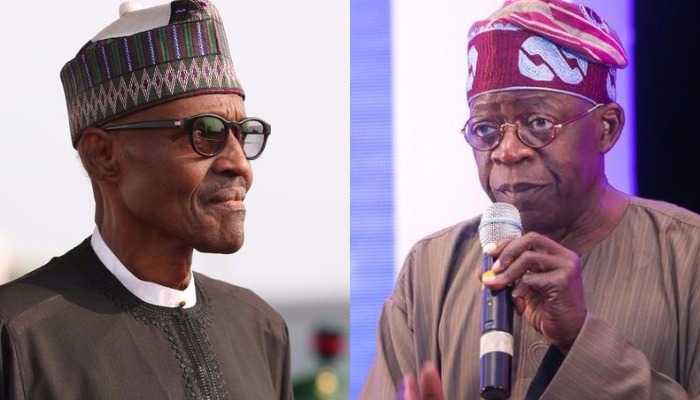Politics
Buhari’s opposition to state police scuttles constitutional amendments

Adebayo Obajemu
Palpable anger, condemnation and public criticisms are swelling against the National Assembly over failure to make critical amendments to the Constitution after investing billions of Naira into the project.
Of most concern to millions of Nigeria is the issue of state police, which the National Assembly refused to consider in spite of the support and recommendation of the state assemblies.
This has become critical to the people given the high level of insecurity in the country. It must be noted that between 2011 and 2022, the National Assembly made over N12.850 billion investment in the business of Constitution amendments, with nothing to show for it
According to Business Hallmark’s investigations, the first time attempt was made to alter the 1999 Constitution was in 2006, but after a long and highly controversial effort, the process collapsed on the altar of Third term, leaving the country poorer for it. However, the first amendment was in January 2011, and coincidentally it was also the last time.
Throughout this period, insecurity had been a challenge, and yet the National Assembly refused to give it a serious consideration it deserves.
Since the 2011 amendments, up till now, relatively a period that encapsulates three different administrations of the National Assembly, no Constitution amendment effort had yielded any positive result, all bogged down by politics and executive control of the legislature after N12.850 billion had been spent.
The funds include the N850 million recently approved in the 2023 budget, in addition to the N4 billion for every administration of the Senate for Constitution review since 2011.
This medium’s findings show that every administration of the Assembly comes up with a fresh Constitution amendment idea for which some N4 billion is approved, to be appropriated and released on the basis of N1 billion per year. Nigerians were recently irked just a couple of weeks ago when the deputy Senate President, Ovie Omo- Agege revealed the failure of the Constitution amendment process.
Omo-Agege, who is also the Chairman of the Senate’s Committee on constitution review passed the buck of the blame for failure to amend the Constitution, especially the issue of state police on state governors whom, he claimed, had refused to allow the state Houses of Assembly to endorse the 44 bills sent to them.
This position was later given fillip by Senate President, Ahmad Lawan, and Speaker of the House of Representatives, Femi Gbajabiamila, when they begged Governor Nasir el-Rufai of Kaduna to plead with his colleagues to allow Houses of Assembly endorse the proposed alterations.
Lawan and Gbajabiamila made the plea in Abuja penultimate Monday at the second edition of the Distinguished Parliamentarians Lecture Series organised by the National Institute for Legislative and Democratic Studies.
El-Rufai, in his remarks as chairman on the occasion, urged the National Assembly to enact a series of laws concerning security, education and the economy among others.
The governor listed the seven interventions he wanted from the National Assembly.
“First is state and community policing. I think we are all clear now that the current policing system is broken. It does not work for Nigeria. And Nigeria is the only federation in the world with one centralised police system. I think this National Assembly can enact the state and community policing system that prevents the abuses of the past and takes into account the challenges of the present.
“Secondly, Value Added Tax has become a major source of survival of this country. This year NNPC has not paid a penny to the Federation Account. We have taxes, particularly Value Added Tax. The fact that VAT is not on the Exclusive List, is a major source of concern for the fiscal health of the federation. I think it is something that this National Assembly can do something about in its last six months.”
He also made a case for making 12 years of education free, adding that “This country can never make progress without educating everyone.
He emphasized the need for state police, which he said the National Assembly ought to have intensified efforts and lobbying to get passed into law, given high level of insecurity.
But not many Nigerians, including the state assemblies agreed with the position of the duo of Senate President and the Speaker of the House of Representatives on the blame game.
The Houses absolved themselves of the allegations of being behind the failure to amend the Constitution and accused the leadership of the National Assembly of resorting to blackmail, after failing to carry them along on key issues for amendments.
Speaking via the Conference of State Assembly Speakers recently, the Houses said the National Assembly bluntly rejected the state police option, which they canvassed.
It must be noted that to successfully amend any section of the Constitution, at least, 24 of the 36 Houses of Assembly must approve the bill to that effect with two-thirds majority. From Omo-Agege’s disclosure, only 11 Houses of Assembly had passed the current amendment exercise with two-thirds majority.
As it stands, the next regime of the National Assembly, which begins in June 2023, will have to start all over on the same issues for which N12.850 billion had been spent by three different regimes of the National Assembly since June 2011.
Professor Adeagbo Moritiwon, a political scientist told Business Hallmark that what scuttled the idea of state police “was the opposition to it by President Muhammadu Buhari. The man allowed politics to override security concerns.
“But because we have a rubber-stamp National Assembly, they could not challenge Buhari on this given the high level of insecurity and the calls for state police by majority of Nigerians. You know the state police will be peopled or staffed by the people from the state, who understand the terrain, and are in better position to fight crime. This is the worst National Assembly since the return of democracy in 1999”.
Civil Society Organisations (CSOs), lawyers, and public analysts are of the view that the people saddled with the responsibility of amendments have not displayed sufficient patriotism in a bid to get over problems militating against successful alteration of the Constitution.
In its own perception, Human and Environmental Development Agenda (HEDA) believes corruption and related problems will only get worse and not better because of failure to remove and alter roadblocks in the Constitution against anti-corruption fight.
HEDA Executive Secretary, Sulaimon Arigbabu, said : “Corruption is Nigeria’s issue and the root of the country’s problem. We are in dire need of the Constitutional review. A lot of the things happening are because there are lacunae in the Constitution.
“All agencies are hindered by one thing or the other in that Constitution. There are not enough provisions in the Constitution to, at least, help to reduce corruption. It’s so unfortunate that those who have been saddled with the power to help make this happen are using such power to aid corruption rather than abate it.”
Also reacting, Human Rights Writers Association of Nigeria (HURIWA) accused the National Assembly of irresponsible leadership, saying the disagreement between the National Assembly and State Assemblies on some areas of the amendments sprouted from failure of the National Assembly to show responsive leadership.
It enjoined Nigerians to demand that the National Assembly deliver on its assignment and give Nigeria an altered constitution for which billions of taxpayers money has been sunk.
“The members of the Constitution alteration panel should be asked to refund, to the last kobo, all the public funds released by the National Assembly for that apparently ill-fated assignment.”
HURIWA’s National Coordinator, Emmanuel Onwubiko, stated that: “This discord shows the lack of any sort of seamless dialogue and partnership between the National Assembly and the State Assemblies. If the leadership of the National Assembly has been very effective and efficient over the last four years, it would have been so easy for both sets of legislators to have a meeting point and hammer out their differences.
“And if the intransigence is from the state governors, who obviously control the Assemblies of those 36 states, then if the hierarchy of the National Assembly is independent of the executive arm of government at the centre, it would be a lot easier for the federal parliamentarians to convince their counterparts from the states to work with the National Assembly to stop the total enslavement of the States Houses of Assembly from the stranglehold of governors.”
“It is like the kettle calling the pot black or how do you expect any sane Nigerian to take the Constitution amendment committee of the National Assembly serious?”
Professor Moritiwon further stated that the Constitution review is dead on arrival because the areas proposed for amendment would never be acceptable to state governors.
“I haven’t actually seen the bills you are referring to. But governors will not allow local councils autonomy or State Assemblies autonomy because those are their conduits. What they want is state police but Buhari is against it for fear that the governors will use it against their opponents among other reasons.
“After all, there is no time for the National Assembly anymore. They have started their campaign and the only serious legislative assignment before them now is the 2023 national budget.”
The states whose houses of assembly have voted on the bills are Abia, Akwa Ibom, Anambra, Delta, Edo, Kaduna, Katsina, Kogi, Lagos, Ogun and Osun states.
This comes about six months after the bills were passed and transmitted to the states for their legislative votes.
Twenty-five other states have failed to consider the bills.
The states have threatened to take no action on the bills unless four more constitutional amendment bills are considered and passed by the National Assembly.
The four are bills to:
*Establish State Police;
*Establish State Judicial Council;
*Streamline the procedure for removing Presiding Officers of State Houses of Assembly and,
*Institutionalise Legislative Bureaucracy in the Constitution.
These demands were contained in a letter from the Conference of Speakers to the National Assembly












